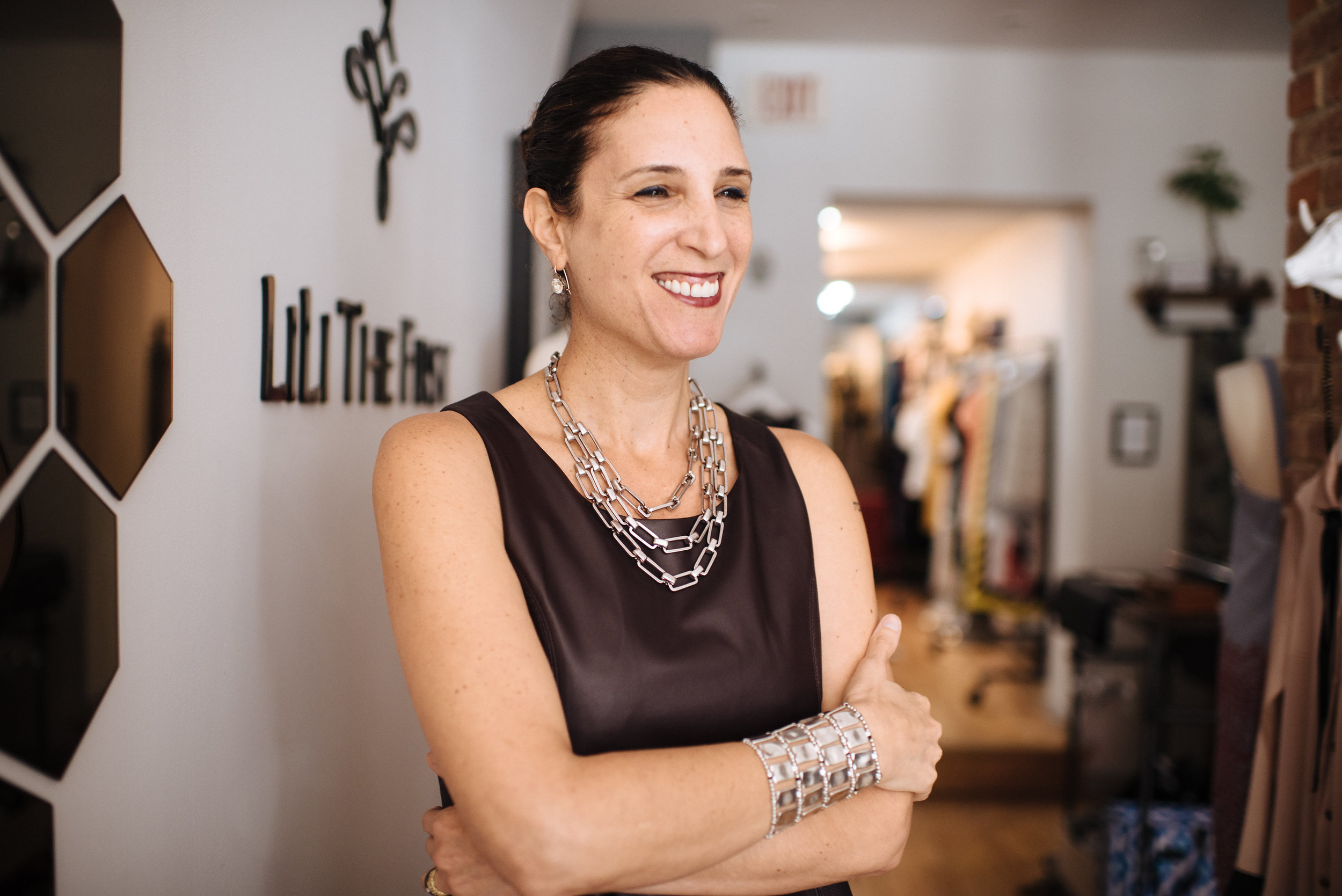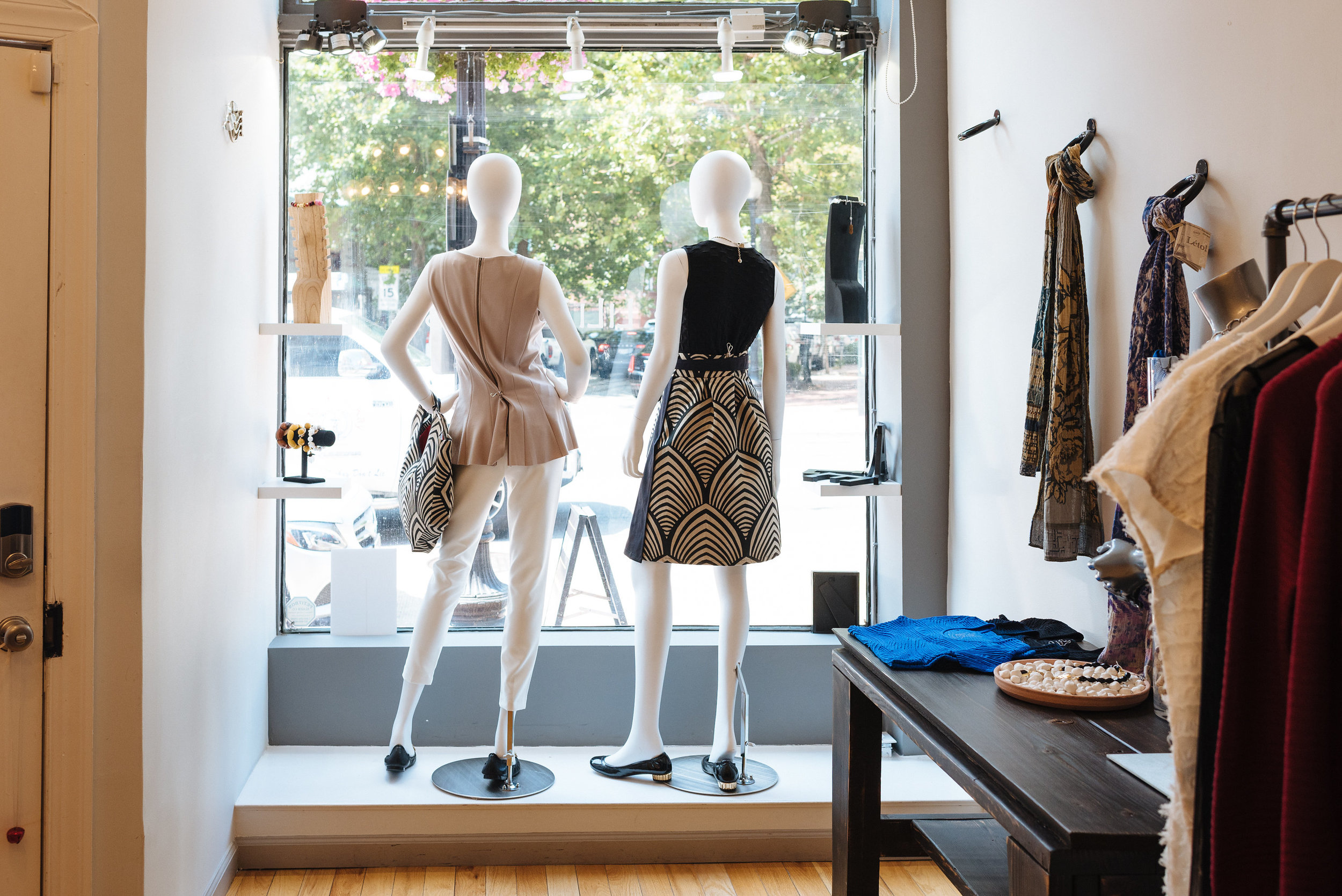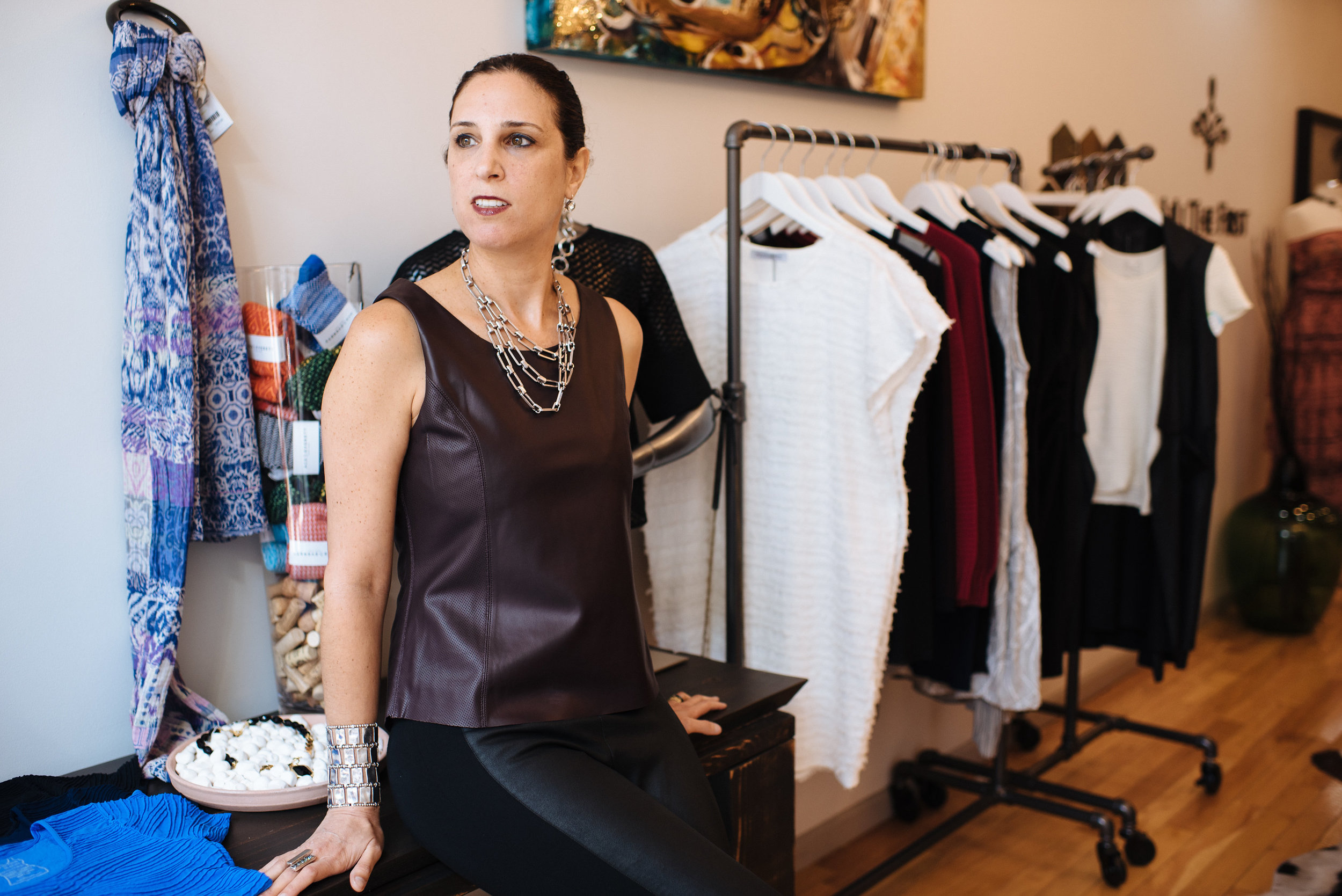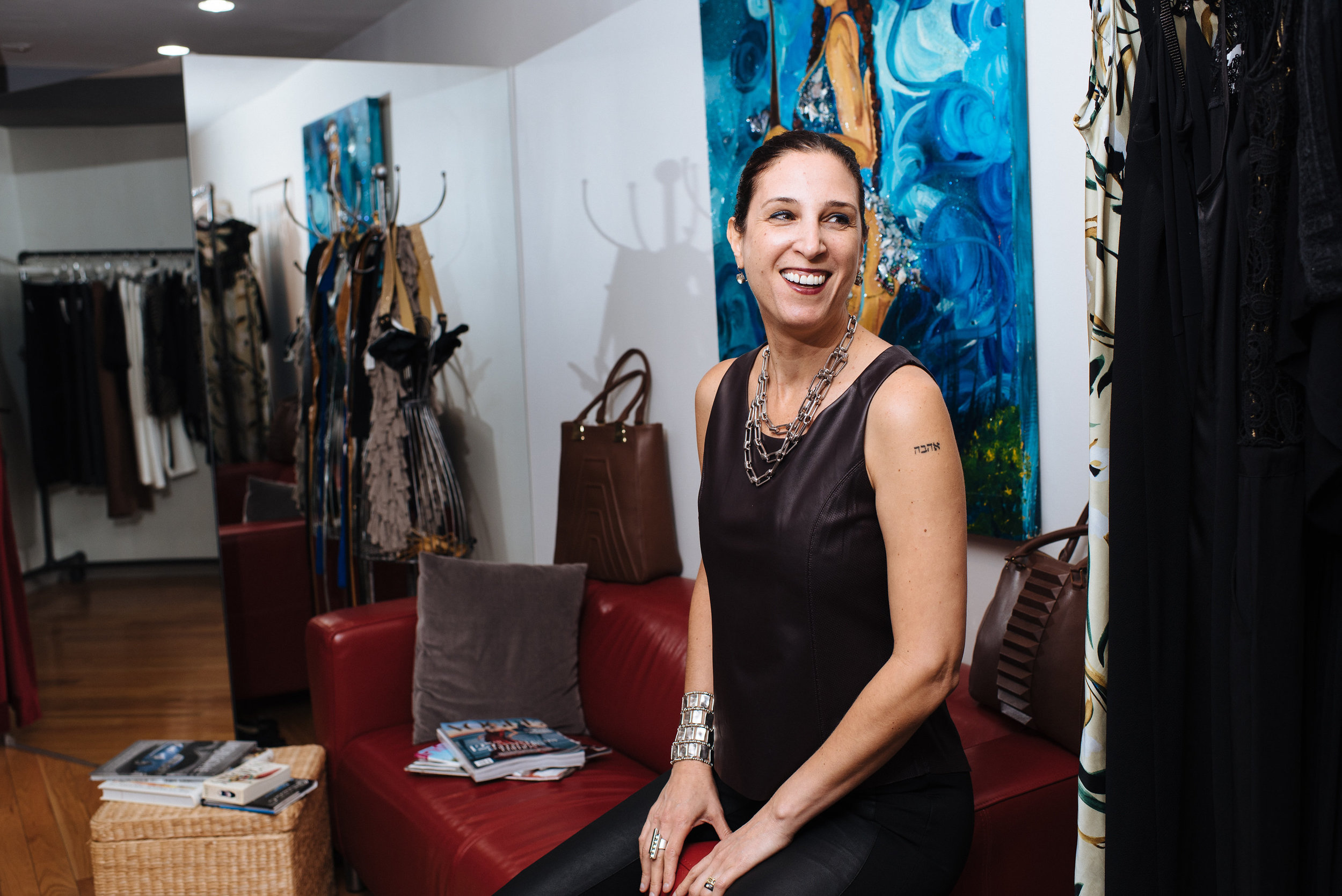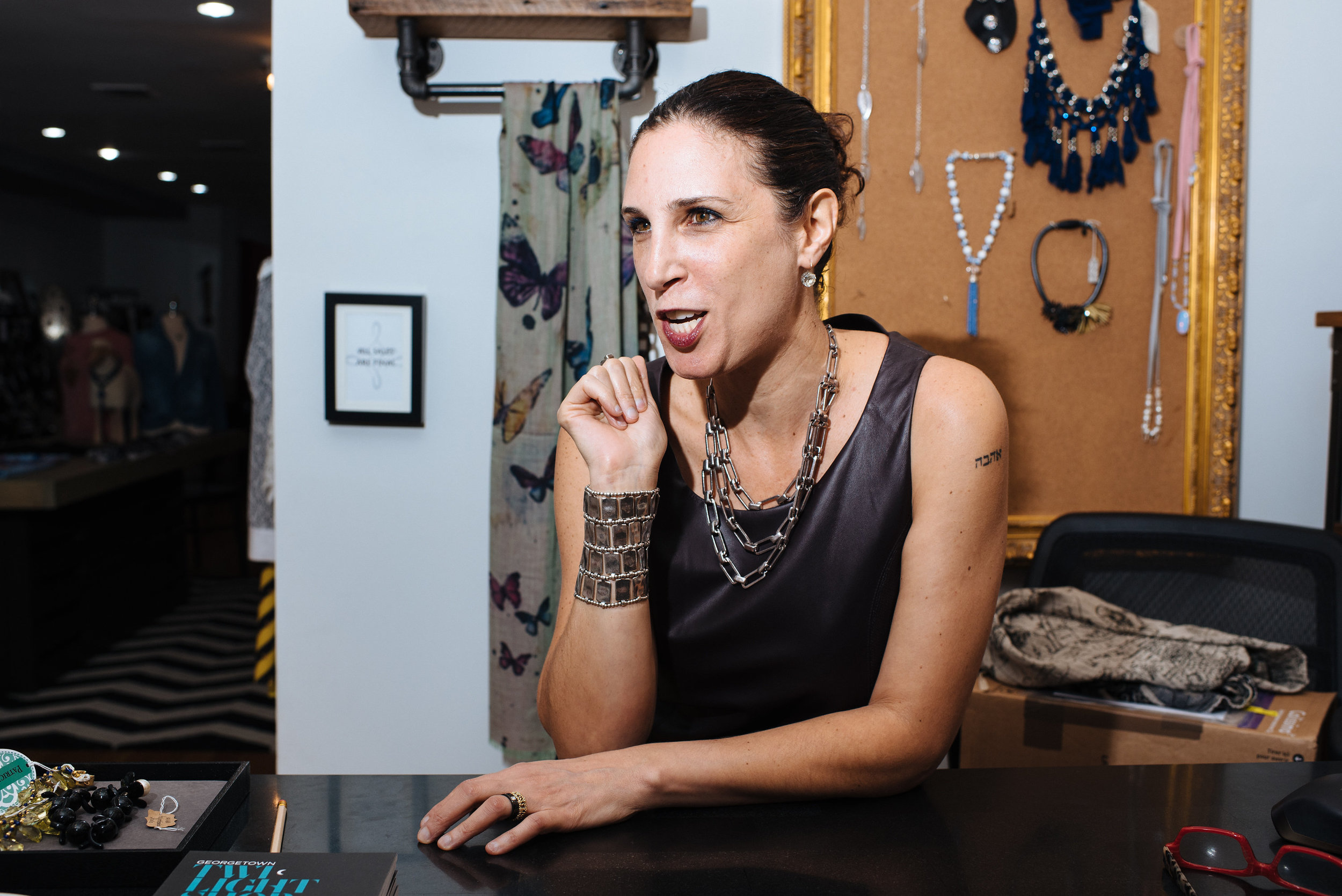‘I Don’t Want to Dress Like My Daughter, Or My Mother’
Ifat Pridan believes in love at first sight. She’s experienced it herself. Witnessed it, too.
‘Fashion is a love affair. If you come into a boutique, there needs to be a click, like with two people. You can see it happen. And sometimes women try to convince themselves not to get something, but they’re always coming back to this thing they fell in love with.’
After spending 20 years as an IT project manager, Ifat couldn’t fight her heart any longer, either. Two years ago, she left corporate America and opened LiLi The First boutique on Wisconsin Avenue.
‘For two decades, at every life milestone I said, ‘Maybe now it’s the time’—and then I didn’t do it,’ says Ifat, who moved her family from Israel to the U.S. in 2001 on an IT contact and never looked back. ‘When my first daughter went to college, I said let me try it for three or four years and if it doesn’t work out, I can always go back to IT. But I don’t know how you can come back after that.’
She hasn’t. Ifat spent the last two years learning how to run a business, drawing on her IT experience to create and balance a budget, and traveling to Europe once a year to cultivate relationships and buy her inventory. All of her pieces come from designers she’s met around the world, each producing within their own community. If the tag says ‘Made in France,’ it’s actually made in France. The sewing, the fabrication, everything.
Each rack represents a different designer, who in turn represents a different culture. Brazil, Japan, Canada, Israel—all are accounted for at LiLi The First.
‘Someone once said, ‘I don’t want to go to a party and meet myself.’ The boutique model was items that are hard to find; not to look like everyone else. It was the most important thing to me. Also because a lot of my shopping was in Europe, it needed that flair. Fashion there is so much more forward and modern and individualized. You don’t shop there in big stores, you just go to boutiques. You buy something and it’s a ‘wow’ piece. That’s what I wanted.’
At 47, Ifat also wanted to carry pieces that fit an underserved group of women.
‘These women in their 40s have grown children, but they still feel young, still go to the gym. They look good. They know they can’t wear mini-skirts or something without a bra, but they still want to look feminine and gorgeous. This is exactly where I am. I don’t want to dress like my daughter, and I don’t want to dress like my mother. But I still want to look like a beautiful, attractive woman.’
LiLi The First caters to women of any age, and any size, too.
‘We welcome any woman—or man—and it’s not that we are giving them clothes that are just to cover them. We really want to celebrate a woman’s body, whatever is. If you’re full figured and have curves, let’s show them off and have fun with fashion. We all have to wear something and we all want to look beautiful, so does it matter what size we are?’
For Ifat, beautiful is synonymous with confident. She understands that clothes are more than fabric.
‘I have this one skirt that I always just look at if I need a good mood for the day. Sometimes people underestimate the confidence that comes with wearing something that makes you feel good. If you look good in something, it’s your business card without saying hello. You don’t need to explain yourself, you don’t need to say this is who I am. Everyone can tell you are when you’re wearing something that’s you.’
She says she’s seen it happen at countless networking events, subconsciously deciding to talk to the woman with the beautiful necklace or the unique shoes who knows exactly who she is—not the woman with the dress that makes her fade into the background.
‘I saw a picture of a 21 year-old-girl on Facebook in a blue dress for her first day of work. Her mother could have worn the same dress, her grandmother could have worn the same dress. They’d all fade in your brain because there’s nothing about it that says I’m a person. It’s terrible. When you go into a room, there’s a purpose why you’re there. Put your personality on display. Go and present yourself.’
Ifat asks each potential customer exactly who they are; whether they like to show skin, be the center of attention, or exude elegance. It’s about understanding each woman and her personality, not grabbing a dress from the rack.
Some pieces sell immediately. Others are just waiting for the right woman.
‘I had a dress here for two years. Someone came in, it was the only dress she tried on, and she said, ‘I’m in love!’’
Another match.
